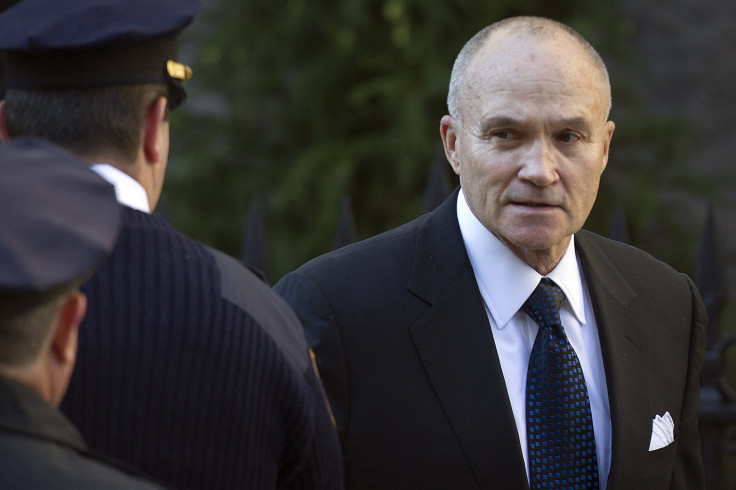Following Walter Scott Shooting, Former NYPD Chief Ray Kelly Changes Mind On Police-Worn Body Cameras

The horrifying footage of an African-American man being shot while fleeing a white police officer in South Carolina was enough to convince former New York police chief Ray Kelly all police officers should wear body cameras. “It’s a game-changer,” Kelly said Sunday on ABC’s “This Week.” “What you will see is a movement now by many more police departments to go to cameras.”
The shooting of the unarmed Walter Scott by officer Michael Slager in North Charleston, South Carolina, alarmed the former NYPD commissioner, who is seen as a leading voice on policing issues. “We have to assume that this officer would not act the way he did if in fact he had a body camera that was recording,” Kelly said.
The statements reflect a change of heart for Kelly, who resisted police-worn body cameras when he led the New York Police Department. Last year, before the launch of a court-ordered pilot program that mandated a handful of officers to wear cameras, Kelly said it was “way too early” to equip all on-duty officers with the devices, telling New York public radio station WNYC, “I think we have to tread carefully in this area.”
As protests have mounted following the recent deaths of several unarmed black men at the hands of white police officers, the use of body cameras has become a central demand among many activists. The Rev. Al Sharpton recently called for a federal law mandating the use of body cameras.
Not all activists are convinced the devices will stem police-involved shootings and heal divisions between law enforcement and communities of color. They point to the choking death of Staten Island resident Eric Garner at the hands of New York police last July. Though the startling incident was caught on video by a bystander, the officer who choked Garner was cleared of wrongdoing.
Evidence shows body cameras have the potential to reduce civilian complaints against police officers and help speed ongoing grievances to resolution. But the prospect of thousands of police officers constantly filming civilians raises concerns over public privacy and costs.
To Kelly, however, the video of Slager opening fire on the defenseless Scott was enough to sweep those worries aside. “This trumps all of those problems,” he said.
© Copyright IBTimes 2024. All rights reserved.






















